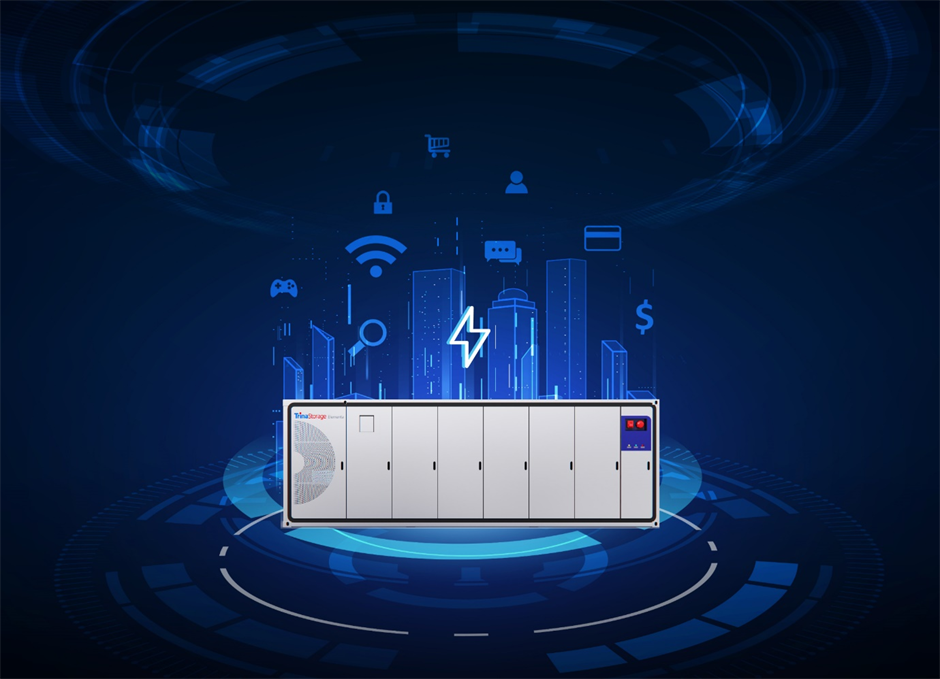From Backup to Baseload: The Versatility of Energy Storage Solutions
- 23/08/16
- Energy Storage
The future of energy storage holds remarkable potential, largely due to the expedited transition from traditionally being seen as primarily ‘backup’ systems to becoming fundamental components of the ‘baseload’ power generation – especially as more renewable power is generated across the world.
Historically, Battery Energy Storage Systems (BESS) were used as backup systems and then commercially within capacity markets. They provided an additional layer of security during power outages or peak demand periods, whether in rural regions or for critical infrastructure like hospitals. In these settings, they functioned as a safety net, storing energy for use when traditional power systems faltered or when the grid needed extra support.
However, with the recent rapid advancements in technology and reductions in cost, BESS are no longer solely about emergency power supply. They've become a key part of the regular, everyday functioning of the power grid. As part of the baseload power generation, BESS now ensures a consistent, reliable flow of electricity. They store excess energy when demand is low and distribute it when demand is high, helping to stabilise the grid and reduce reliance on less environmentally friendly peak power plants.

Moreover, BESS are critical in addressing one of the main challenges of renewable energy sources like wind and solar – intermittency. By storing energy when production exceeds demand (like on sunny or windy days) and releasing it when production is low (like at night or during calm weather), BESS can enable renewables to be a reliable source of baseload power.
Looking ahead, as the global push towards renewable energy intensifies, the role of BESS in baseload power generation is expected to grow. Their capacity to store and manage power will be vital in integrating more renewable sources into the grid, ensuring grid stability, and making sustainable, reliable, and efficient power a reality. The future of BESS, therefore, looks bright and indispensable in our energy landscape.
BESS baseload power applications
Enhancing Utility scale efficiency with BESS
Utility companies shoulder the crucial task of supplying electricity to various sectors: homes, businesses, and public facilities. This demand-supply matching exercise is fraught with its unique challenges, given the dynamic nature of electricity consumption.
The ever-changing power demand
Electricity usage isn't a flat line—it spikes during peak hours and falls during off-hours. This fluctuation creates a stressful scenario for utilities, forcing them to maintain a delicate balance between supply and demand, ensuring no wastage while also avoiding shortfalls.
BESS is a modern solution to an age-old problem. Systems like Trina Storage’s Elementa allow utilities to store excess energy produced during low-demand times. This stored energy serves as a power reservoir, ready to be tapped during peak demand, acting as a buffer against sudden demand surges.
- Peak Shaving: by releasing stored energy during peak times, BESS helps flatten demand peaks, reducing the strain on the grid and averting potential blackouts.
- Grid stabilisation: With their fast response times, BESS can inject power into the grid within milliseconds, thereby enhancing grid stability.
- Energy arbitrage: Utilities can harness BESS to store energy when prices are low (off-peak) and sell it back to the grid when prices are high (on-peak), making operations more cost-effective and leveraging financial gain as a new revenue source for companies.
Sustainable grid management
BESS brings to the table an efficiency never seen before, transforming how utility companies manage their grids. By enabling smart energy storage, these systems help utilities tread the path towards a more sustainable power grid, one that's reliable even during peak demand periods.
Backup power and future-readiness
BESS is more than just an energy efficiency tool. It provides industrial facilities with the ability to maintain operations even during grid outages by serving as a backup power source. This resilience makes industrial facilities better equipped to handle power disruptions, increasing their overall reliability and robustness.

With BESS, industries aren't just tackling today's energy challenges—they're also preparing for the future. As we move towards an energy landscape characterised by renewable energy and decentralisation, BESS's role in ensuring smooth operations, irrespective of external power supply fluctuations, is set to become even more critical.
By integrating BESS, organisations and corporations across many industries are future-proofing themselves, ready to embrace the upcoming changes in the energy sector.
Relevant Topics
Smart Energy Solutions
delivered straight to your inbox

